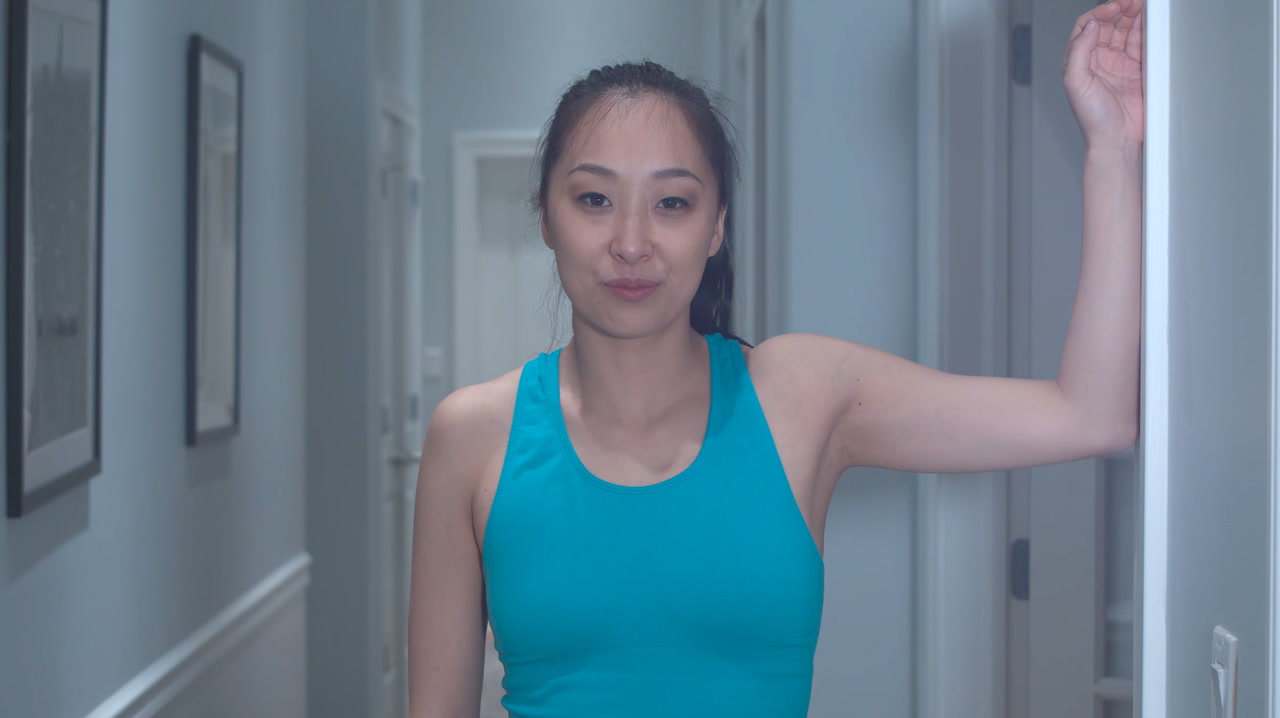When your neck hurts, it can affect your sleep and lead to less energy and more pain. Here are 3 tips to help you reduce neck pain and get a better night’s rest.
Selecting the best pillow for your sleeping position is one way to alleviate nighttime neck pain.
1. Match your pillow height with your sleeping position
While there is no single pillow height that works best for all sleepers, you want a pillow that supports the natural curve of your neck. To help ease the stress on your neck, follow these guidelines for choosing the correct pillow based on your preferred sleeping position:
- Back Sleepers may benefit from a thin pillow. Test if a pillow is right for you by lying down on the pillow and having a family member or friend take a picture of the curve of your neck. Ideally, the curve of your neck will look similar to when you're standing with good posture (standing tall with your head up and shoulders back).
- Side Sleepers typically need a thicker pillow than back sleepers to ensure the neck and head are positioned in the middle of the shoulders. Your height and the width of your shoulders will help determine the kind of pillow you ought to buy—so if you’re petite you will need a slimmer pillow than if you’re broad-shouldered.
- Stomach Sleepers may benefit from an ultra-slim pillow or foregoing a pillow altogether. Since sleeping on the stomach places more stress on the cervical spine compared to other sleep positions, some people may want to avoid this position.
If you’re a back or side sleeper, you may also benefit from placing a small roll-shaped pillow under your neck for additional support—or you can simply use a rolled-up towel.
2. Ditch your phone before bedtime
Believe it or not, your phone could be hindering your sleep in a couple ways by:
- Causing neck pain. Many people bend their head down to look at the phone while texting or browsing the web. The further you bend your head forward, the more stress it puts on the cervical spine—up to 60 pounds of force.1Hansraj KK. Assessment of Stresses in the Cervical Spine Caused by Posture and Position of the Head. Surgical Technology International. 2014;11(25):277-9. Spending too much time looking down at the phone may cause neck pain, also commonly called text neck.
- Disrupting the sleep cycle. Your phone emits a blue light, which may be problematic at nighttime when your body is trying to get ready for sleep. Some studies suggest that exposure to blue light may inhibit sleep by delaying your body’s release of melatonin.2Mortazavi SAR, Parhoodeh S, Hosseini MA, et al. Blocking short-wavelength component of the visible light emitted by smartphones’ screens improves human sleep quality. Since sleep is an important part of the body’s healing process, less sleep may also contribute to neck pain.
Try to avoid phone use in bed and shortly before bedtime. If you have to look at your phone near bedtime, hold it at eye level and limit screen time to only a few minutes.
3. Stretch your neck before bed
Stretching your neck loosens tight muscles and may help relieve pain. Here is one easy neck stretch you can try before bed to loosen your levator scapulae muscle (the muscle that connects your neck to your shoulder blade).
- Sit up straight with both hands at the sides.
- Raise the right arm forward and reach over the back with the hand grasping the right shoulder blade and applying downward pressure. (If raising the elbow above the shoulder is too complicated at first, this step can be skipped.)
- While keeping everything else still, rotate the head to the left about 45 degrees (which is about halfway toward the shoulder).
- Tilt the chin downward until a good stretch is felt on the back right side of the neck.
- Hold for 30 to 60 seconds, or as tolerated.
- Repeat on other side.
See Easy Levator Scapulae Stretch for Neck Pain
Gentle range-of-motion stretches may also help reduce neck stiffness.
Make sure to consult with your doctor if neck pain interrupts your sleep for more than a week. A qualified medical professional can recommend a comprehensive treatment plan to help reduce neck pain while you sleep.
See Addressing Pain and Medical Problems Disrupting Sleep
Learn more:
- 1 Hansraj KK. Assessment of Stresses in the Cervical Spine Caused by Posture and Position of the Head. Surgical Technology International. 2014;11(25):277-9.
- 2 Mortazavi SAR, Parhoodeh S, Hosseini MA, et al. Blocking short-wavelength component of the visible light emitted by smartphones’ screens improves human sleep quality.







